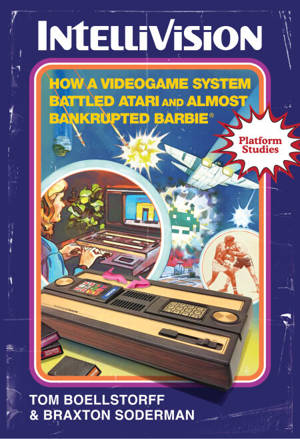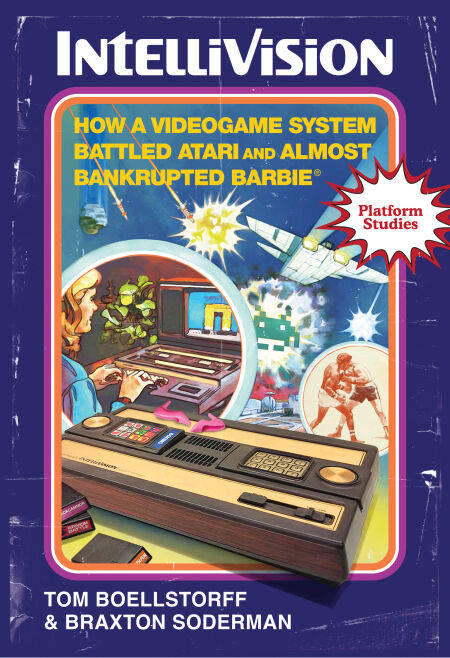
- Retrait gratuit dans votre magasin Club
- 7.000.000 titres dans notre catalogue
- Payer en toute sécurité
- Toujours un magasin près de chez vous
- Retrait gratuit dans votre magasin Club
- 7.000.0000 titres dans notre catalogue
- Payer en toute sécurité
- Toujours un magasin près de chez vous
Intellivision EBOOK
How a Videogame System Battled Atari and Almost Bankrupted Barbie®
Tom Boellstorff, Braxton Soderman
59,14 €
+ 59 points
Description
The engaging story of Intellivision, an overlooked videogame system from the late 1970s and early 1980s whose fate was shaped by Mattel, Atari, and countless others who invented the gaming industry.
Astrosmash, Snafu, Star Strike, Utopia—do these names sound familiar to you? No? Maybe? They were all videogames created for the Intellivision videogame system, sold by Mattel Electronics between 1979 and 1984. This system was Atari’s main rival during a key period when videogames were moving from the arcades into the home. In Intellivision, Tom Boellstorff and Braxton Soderman tell the fascinating inside story of this overlooked gaming system. Along the way, they also analyze Intellivision’s chips and code, games, marketing and business strategies, organizational and social history, and the cultural and economic context of the early US games industry from the mid-1970s to the great videogame industry crash of 1983.
While many remember Atari, Intellivision has largely been forgotten. As such, Intellivision fills a crucial gap in videogame scholarship, telling the story of a console that sold millions and competed aggressively against Atari. Drawing on a wealth of data from both institutional and personal archives and over 150 interviews with programmers, engineers, executives, marketers, and designers, Boellstorff and Soderman examine the relationship between videogames and toys—an under-analyzed aspect of videogame history—and discuss the impact of home computing on the rise of videogames, the gendered implications of play and videogame design at Mattel, and the blurring of work and play in the early games industry.
Astrosmash, Snafu, Star Strike, Utopia—do these names sound familiar to you? No? Maybe? They were all videogames created for the Intellivision videogame system, sold by Mattel Electronics between 1979 and 1984. This system was Atari’s main rival during a key period when videogames were moving from the arcades into the home. In Intellivision, Tom Boellstorff and Braxton Soderman tell the fascinating inside story of this overlooked gaming system. Along the way, they also analyze Intellivision’s chips and code, games, marketing and business strategies, organizational and social history, and the cultural and economic context of the early US games industry from the mid-1970s to the great videogame industry crash of 1983.
While many remember Atari, Intellivision has largely been forgotten. As such, Intellivision fills a crucial gap in videogame scholarship, telling the story of a console that sold millions and competed aggressively against Atari. Drawing on a wealth of data from both institutional and personal archives and over 150 interviews with programmers, engineers, executives, marketers, and designers, Boellstorff and Soderman examine the relationship between videogames and toys—an under-analyzed aspect of videogame history—and discuss the impact of home computing on the rise of videogames, the gendered implications of play and videogame design at Mattel, and the blurring of work and play in the early games industry.
Spécifications
Parties prenantes
- Auteur(s) :
- Editeur:
Contenu
- Nombre de pages :
- 432
- Langue:
- Anglais
- Collection :
Caractéristiques
- EAN:
- 9780262380546
- Date de parution :
- 04-11-24
- Format:
- Ebook
- Protection digitale:
- Adobe DRM
- Format numérique:
- ePub

Les avis
Nous publions uniquement les avis qui respectent les conditions requises. Consultez nos conditions pour les avis.






